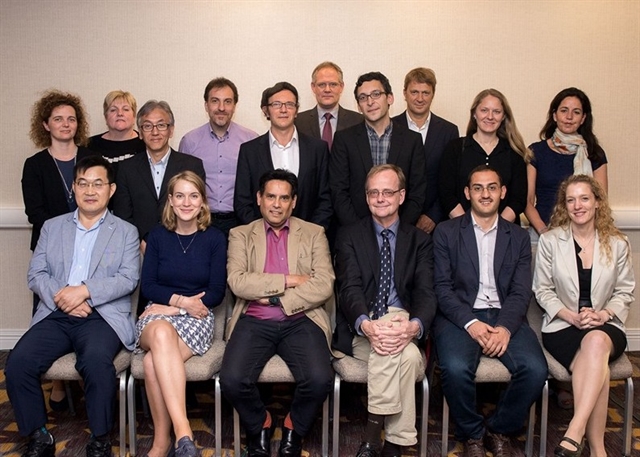Non-Motor Symptoms in Parkinson's Disease Study Group
Have questions? Contact the group’s MDS Staff Liaison, Allie Stoffel, at astoffel@movementdisorders.org.
Goals
- To collect new and novel patient and carer reported information on Non-Motor Symptoms (NMS) of Parkinson’s disease from around the world
- To develop a MDS version of a new PD non motor symptoms scale
- To ensure that comprehensive and unified NMS assessments in clinical trials and scientific studies are increasingly used to increase the “real life” value of clinical trials and clinical studies
- To set up and start international cross cultural studies, to improve existing tools for NMS (e.g. NMSS and NMSQ)
- To develop animal models addressing non-motor phenotypes of PD
- To refine, validate and establish non-motor subtypes of PD and related biomarkers
View the group's: |
Ongoing Projects
- Bodily mapping of symptoms and emotions in Parkinson’s disease – Data will be collected from both in-person study visits and online survey.
- Vision in PD – Multicenter collaborative observational, longitudinal follow-up study evaluating the prevalence, severity, and impact of vision disturbances in patients with PD.
- Living with long-term conditions scale - Cross-cultural adaptation and relationship with non-motor symptoms in different populations.
- Review on apathy in PD.
Leadership

Chair
Cristian Falup-Pecurariu
Steering Committe:
Roongroj Bhidayasiri
Juho Joutsa
Walaa Kamel Elsayed
Prashanth Kukkle
Valentina Leta
Irene Malaty
Per Odin
Maria Elisa Piemonte
K Ray Chaudhuri
Raymond Rosales
Delaram Safarpour
Imran Sarker
Anette Schrag
Yoshio Tsuboi
Daniel Weintraub
Getting Involved
In addition to the MDS staff liaison, the Study Group's administrative managers are Lucia Batzu (luciabatzu@gmail.com) and Iulia Murasan (iulia_murasan@yahoo.com).
Themed Subgroups
Published Papers
![]()
Gastrointestinal barriers to levodopa transport and absorption in Parkinson's disease
- Published paper
![]()
![]()
![]()
Why do 'OFF' periods still occur during continuous drug delivery in Parkinson's disease?
- Published paper
![]()
Movement disorders in COVID-19 times: impact on care in movement disorders and Parkinson disease
- Published paper
![]()
![]()
Does Ethnicity Influence Recruitment into Clinical Trials of Parkinson's Disease?
- Published paper
![]()
![]()
The Impact of COVID‐19 on Access to Parkinson's Disease Medication
- Published paper
![]()
![]()
![]()
![]()
![]()
Quality of life outcome after subthalamic stimulation in Parkinson's disease depends on age
- Published paper
“  ”
”
— K. Ray Chaudhuri
“Non-motor symptoms have been the defining cry from people with Parkinson's. Pioneering work from the MDS Non-Motor Symptoms in Parkinson's Disease Study Group has led to global adoption of clinical measurement of these symptoms in real life, using novel scales and questionnaires, in addition to helping the industry start novel, cutting-edge clinical trials to address treatment of non-motor symptoms.”







